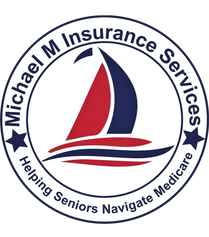The idea of moving to another country—whether for retirement, travel, or family
reasons can be an exciting adventure. But if you’re enrolled in Medicare, you might have one important question on your mind: Can I still use my Medicare benefits if I live outside the United States?
Does Medicare Cover Health Care Outside the United States?
What Is Not Covered?
- Hospital stays or doctor visits abroad.
- Emergency medical services outside the U.S.
- Prescription drugs (unless you’re traveling through Canada to the U.S. under very specific circumstances).
Exceptions to Medicare Coverage Outside the U.S.
1. Emergency Care in a Foreign Hospital
- You’re within the U.S. border but near a foreign country (for example, crossing the border to Canada or Mexico for a short trip).
- The foreign hospital must be closer than the nearest U.S. hospital capable of providing the care you need.
- The emergency is considered an urgent need and you can’t get to a U.S. hospital in time.
2. Emergency Medical Transportation
- You were in an emergency situation.
- The transportation is necessary to get you to the nearest U.S. hospital.
- The transportation is typically covered under Medicare Part B if deemed an emergency.
What Are Your Options for Coverage Abroad?
1. Travel Insurance
- Emergency medical care (hospital stays, doctor visits, surgery)
- Medical evacuation to the nearest hospital or back to the U.S.
- Prescription medications for emergencies
2. Medicare Advantage Plans (Part C)
Some Medicare Advantage plans may offer limited international coverage but this is very specific. Most Medicare Advantage plans only provide coverage in the U.S. and its territories. However, there are certain plans that may cover emergency care while you’re traveling
abroad, though coverage will likely be limited.
- Check with your Medicare Advantage provider to see if your plan includes coverage for emergency services abroad.
- Understand the limits of that coverage, such as the deductible, co-pays, and coverage caps.
3. Expatriate Insurance for U.S. Citizens Living Abroad
- Routine medical care
- Emergency medical treatment
- Hospital stays
- Evacuation to the U.S. if needed
Final Thoughts: Planning Ahead for International Coverage
If you’re planning to move abroad or spend significant time outside the U.S., it’s important to understand how Medicare works in these situations. While Medicare does not typically provide
coverage for care outside the U.S., there are options available, including travel insurance, Medicare Advantage plans, and expat health insurance.
- Check with your Medicare Advantage provider (if you have one) about international coverage.
- Research travel health insurance or expat insurance plans that will cover your medical needs while abroad.
- Consult with your Medicare advisor to discuss the best options and ensure you have the coverage you need for emergencies.

